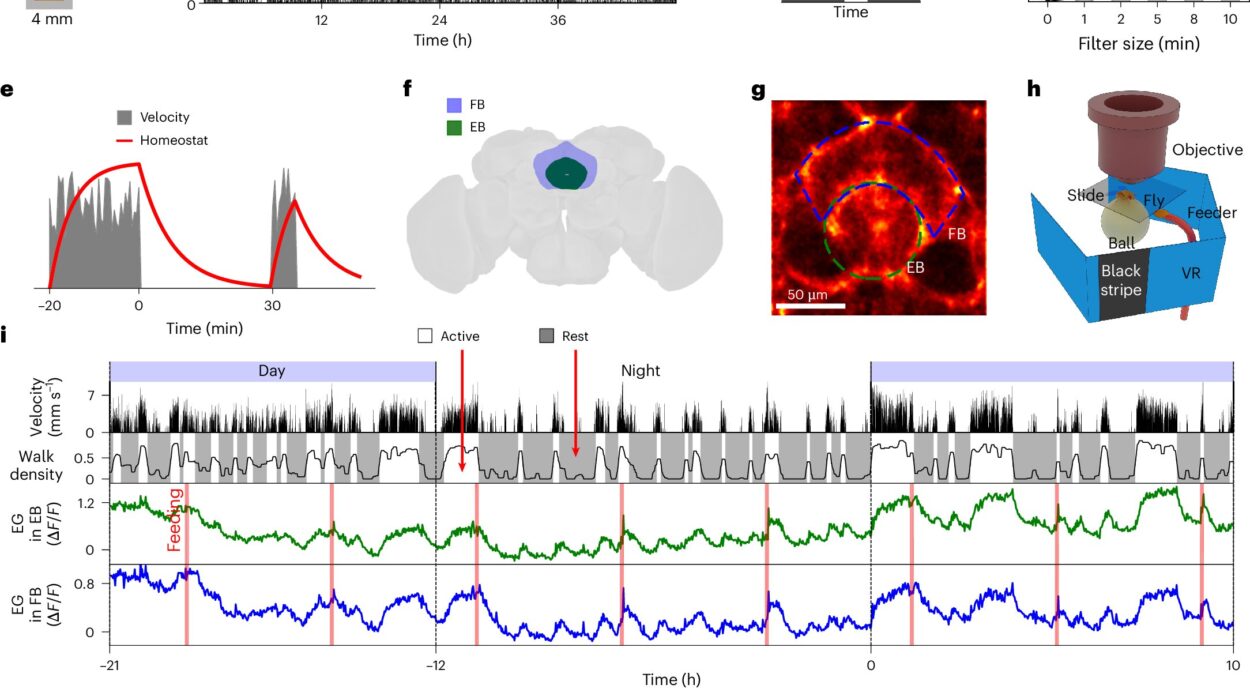When the lights go out, the teenage brain doesn’t always follow. Tossing and turning late into the night, many adolescents find themselves locked in a cycle of restless sleep, anxious thoughts, and sluggish mornings. But a new study suggests that there may be a surprisingly simple way to soften the impact of these sleepless nights: keep sleep schedules regular.
In a paper published in the Journal of Sleep Research, scientists have uncovered compelling evidence that sleep regularity—the consistency of sleep and wake times from night to night—plays a critical role in protecting teens from the psychological fallout of poor sleep.
The study focused on adolescents, a group notorious for struggling with healthy sleep. Not only do teens tend to go to bed late and wake up early for school, but they’re also vulnerable to the mental health consequences of disrupted rest. Researchers discovered that while sleep difficulties were tied to increased anxiety and somatic symptoms the next day, these effects were less severe in teens whose sleep schedules stayed steady.
It’s the latest insight into how the rhythm of sleep—not just the quantity or quality—can make a profound difference in adolescent mental health.
The Teen Sleep Crisis
Teenagers today are caught in a perfect storm of biological changes, academic pressures, screen time, and social demands that collectively wreak havoc on their sleep. According to national health data, an estimated 65% to 80% of adolescents either don’t get enough sleep or report frequent sleep difficulties. And the consequences are serious.
Poor sleep is more than an annoyance. It’s a proven risk factor for a host of mental health issues—depression, anxiety, irritability, and social withdrawal—as well as physical health problems like obesity, immune dysfunction, and cardiovascular disease. In short, sleep is not a luxury for teenagers. It’s a necessity for both mind and body.
“Sleep is the body’s time to heal, to reboot,” said Jinjin Yan, lead author of the new study and a researcher focused on adolescent development. “And yet, it’s one of the first things to suffer when a teenager’s schedule gets out of sync.”
Inside the Study: Tracking Teens Day by Day
The research team analyzed data from 350 high school students, all around 14 years old, from five diverse schools in an urban area of the northeastern United States. Nearly 70% of participants were girls, and the group represented a wide range of racial and ethnic backgrounds.
For two weeks, the adolescents wore actigraphs—wrist-worn monitors that track movement and help estimate sleep duration and patterns. At the same time, they completed daily surveys about their emotional and physical well-being, reporting symptoms of anxiety, stress, and unexplained physical discomfort such as fatigue or stomach pain. These so-called “somatic symptoms” are often subtle expressions of emotional distress.
The researchers also gathered subjective data using the Pittsburgh Sleep Quality Index, a well-established tool for measuring perceived sleep quality. What they found paints a nuanced picture of how sleep and mental health interact on a day-to-day basis.
On nights when teens had more difficulty falling asleep—or when their sleep was more fragmented—they tended to report more anxiety and somatic complaints the next day. But here’s where it gets interesting: teens who had consistent sleep and wake times across the two-week period were somewhat shielded from the worst effects.
“Sleep regularity acted like a buffer,” said Yan. “It didn’t eliminate the impact of a bad night’s sleep, but it helped reduce the severity of next-day mental and physical symptoms.”
Why Consistency Matters
The idea that sleep regularity is important isn’t new—but this study is among the first to measure its protective effects on a day-to-day basis in adolescents. While most sleep studies look at overall sleep duration or quality, few have explored how consistent sleep timing interacts with short-term emotional health.
“Our bodies are deeply rhythmic,” explained Dr. Michael Breus, a clinical psychologist and sleep specialist not involved in the study. “The more regular your sleep schedule, the better your circadian system functions. That means better hormone regulation, emotional processing, and resilience to stress.”
Teenagers, in particular, face challenges in keeping consistent schedules. Their biological clocks naturally shift later during puberty, making it harder to fall asleep early. Combine that with early school start times, and you have a recipe for chronic circadian misalignment.
The study’s findings offer a glimmer of hope: even if teens occasionally sleep poorly, maintaining consistent bedtimes and wake-up times may help soften the blow. It’s a small but meaningful step toward better mental health outcomes.
Not Just About Sleep Quantity
What’s especially important about this research is what it says about the quality and consistency of sleep—not just the number of hours logged. Many teens and parents believe that catching up on sleep during weekends is enough to compensate for sleepless weekdays. But this study suggests that irregular sleep schedules may actually increase vulnerability to mental health symptoms, even if total sleep time is adequate on average.
The researchers caution that their findings focus on short-term outcomes. They didn’t examine how these patterns might play out over months or years. Still, the implications are clear.
“By unpacking the complex interplay between sleep regularity and daily sleep difficulties, we identified sleep regularity as a potentially modifiable factor that protects against the detrimental impact of sleep difficulties,” the authors wrote.
What This Means for Parents, Schools, and Teens
So, what can be done?
For parents, establishing a consistent bedtime and wake-up routine—even on weekends—can help stabilize a teen’s internal clock. For schools, later start times have already been shown to improve student health and performance, and this new research adds more weight to those arguments. For teens themselves, the takeaway is both sobering and empowering: your mental health is closely tied to your sleep habits, and small changes can make a big difference.
“Sleep is a powerful lever for well-being,” said Yan. “If we can help adolescents understand that, and give them the tools to make better choices, we may see real improvements in mental health.”
Looking Ahead
This study adds to a growing body of research highlighting the deep, often underestimated link between sleep and emotional well-being. It suggests that sleep regularity isn’t just a matter of feeling refreshed—it could be a crucial factor in managing daily anxiety, stress, and physical symptoms tied to psychological distress.
As science continues to explore the sleeping teenage brain, one message is becoming increasingly clear: regular sleep isn’t optional—it’s foundational.
The rhythms of rest, it turns out, may be among the most powerful and accessible tools we have to support adolescent health in a restless world.






